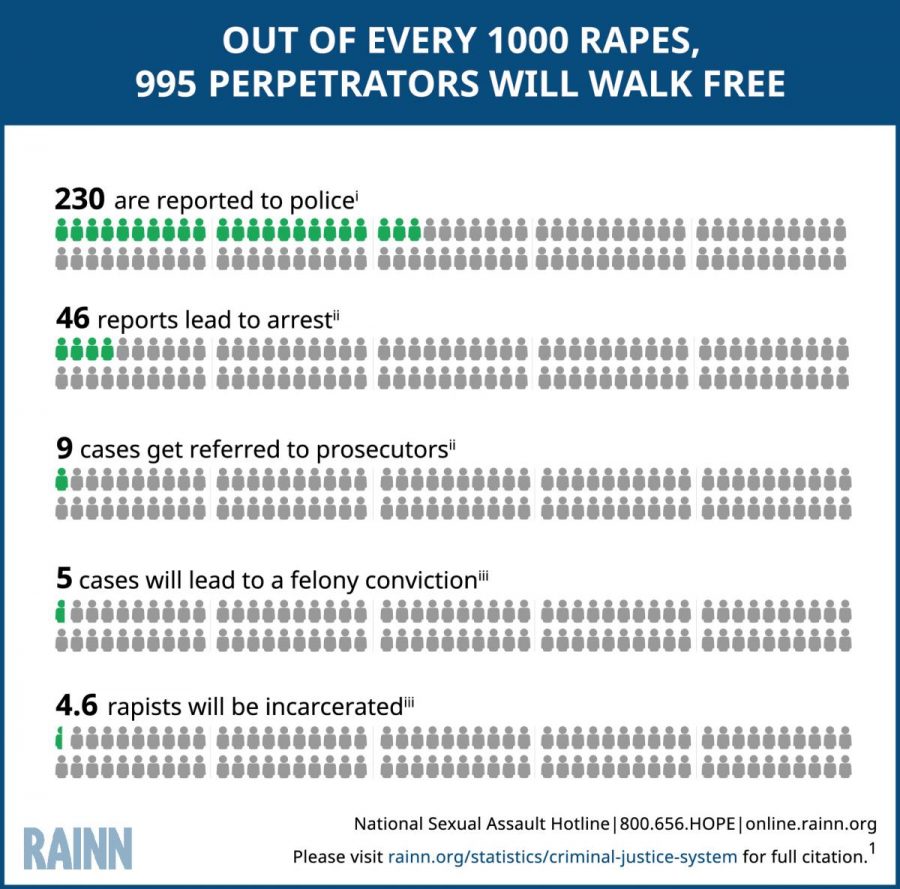Sexual harassment awareness recognized during April
The words “sexual assault” are often followed by a lot of questions and/or opinions from the public. However, during April, it’s only about raising awareness for the men and women that have or will experience sexual assault.
Sexual assault can be characterized as a few different things, including rape, attempted rape or any unwanted sexual contact or threats. According to the National Sexual Violence Research Center (NSVRC), one in five women and one in 71 men will be raped at some point in their lives. Of the women affected, about 51% reported being raped by an intimate partner, and almost 41% by someone they knew.
During April, the NSVRC works to educate society on how to prevent sexual assault and spread awareness on the topic. They have created the campaign “I Ask” to promote the consent aspect of any type of sexual act. They list consent, digital consent, how to teach consent early and how power impacts consent, all of which include content able to be downloaded in order to learn more about each topic.
As of now, rape is the most under-reported crime; 63% of rape cases go unreported to the police.
Out of 1000 rapes, 240 are reported to the police, 46 of those lead to arrest, nine get referred to prosecutors, five lead to felony conviction and about five lead to incarceration. According to the Rape, Abuse and Incest National Network (RAINN), the nation’s largest anti-sexual violence organization, out of 1000 rapes, 995 perpetrators will walk free.
Alison Turkos was only 16 when she first experienced sexual assault at a friend’s graduation party, and 18 when she experienced her second during her freshman year of college.
“I wanted to be put together, I wanted to make my parents proud, and being a victim of a violent crime, of two brutal rapes, was not something that I thought fit into that perfect box,” she told ABC news when explaining why she waited nearly a decade to tell anyone what had happened.
According to Beverly Engel, a psychotherapist and author of more than 20 self-help books, including a forthcoming book on surviving sexual assault, victims can often feel ashamed to come forward.
“Sexual assault is a very humiliating and dehumanizing act against someone. The person really feels invaded and defiled, and there is a lot of shame attached to that,” she said.
Raising awareness for these terrible acts could potentially educate more of society on how to prevent these situations, which could in turn lessen the percentage of men and women that experience sexual assault at some point during their lives.
If someone is a victim of any form of sexual assault, the National Sexual Assault Hotline is free, confidential, open 24 hours a day, seven days a week and can be reached at (800) 656-HOPE.



